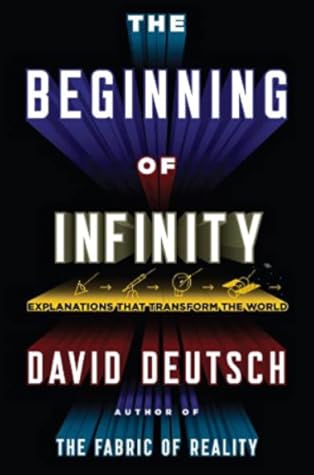First, it is a perfect example of bad explanation: it could be used to ‘explain’ anything. Second, one way it achieves that status is by addressing only the form of the question and not the substance: it is about who said something, not what they said. That is the opposite of truth-seeking. Third, it reinterprets a request for true explanation (why should something-or-other be as it is?) as a request for justification (what entitles you to assert that it is so?), which is the justified-true-belief chimera. Fourth, it confuses the nonexistent authority for ideas with human authority (power) – a
...more
Welcome back. Just a moment while we sign you in to your Goodreads account.


